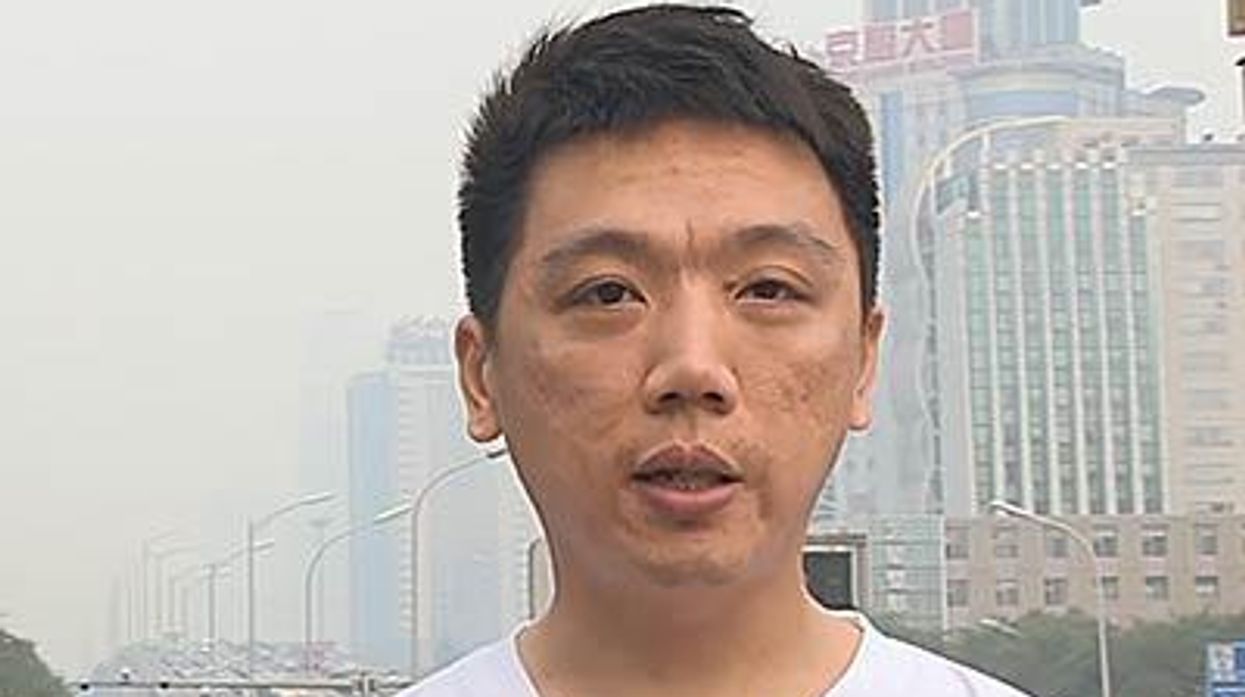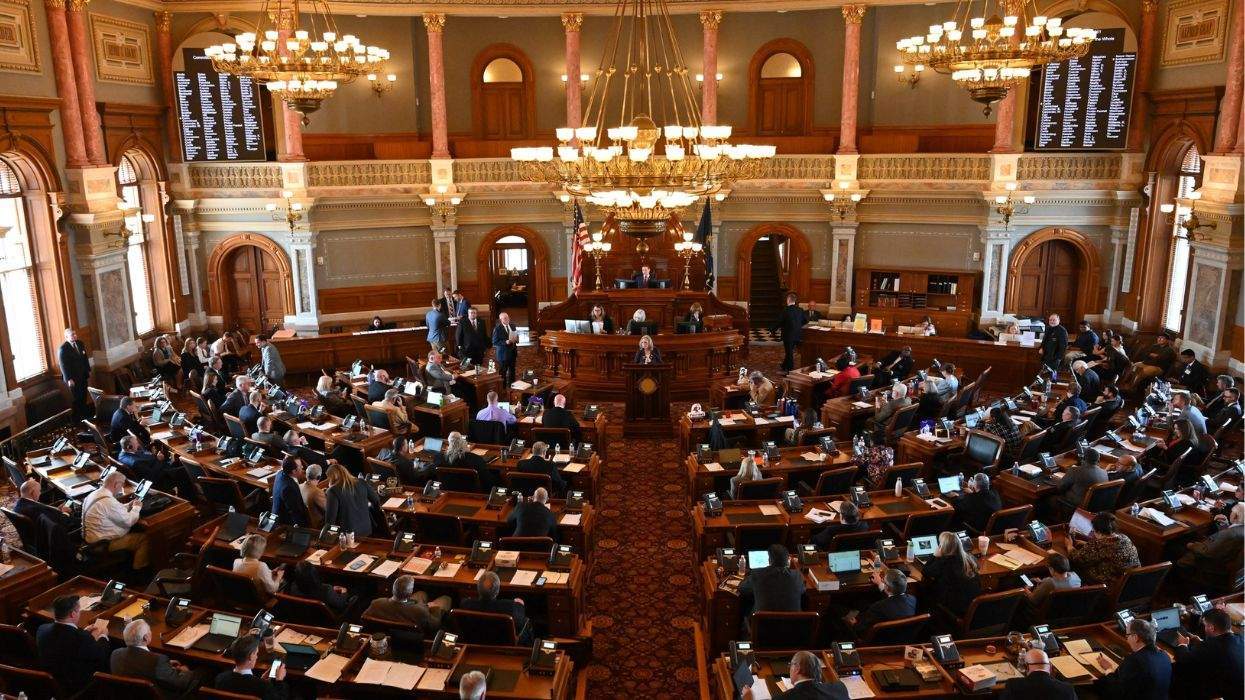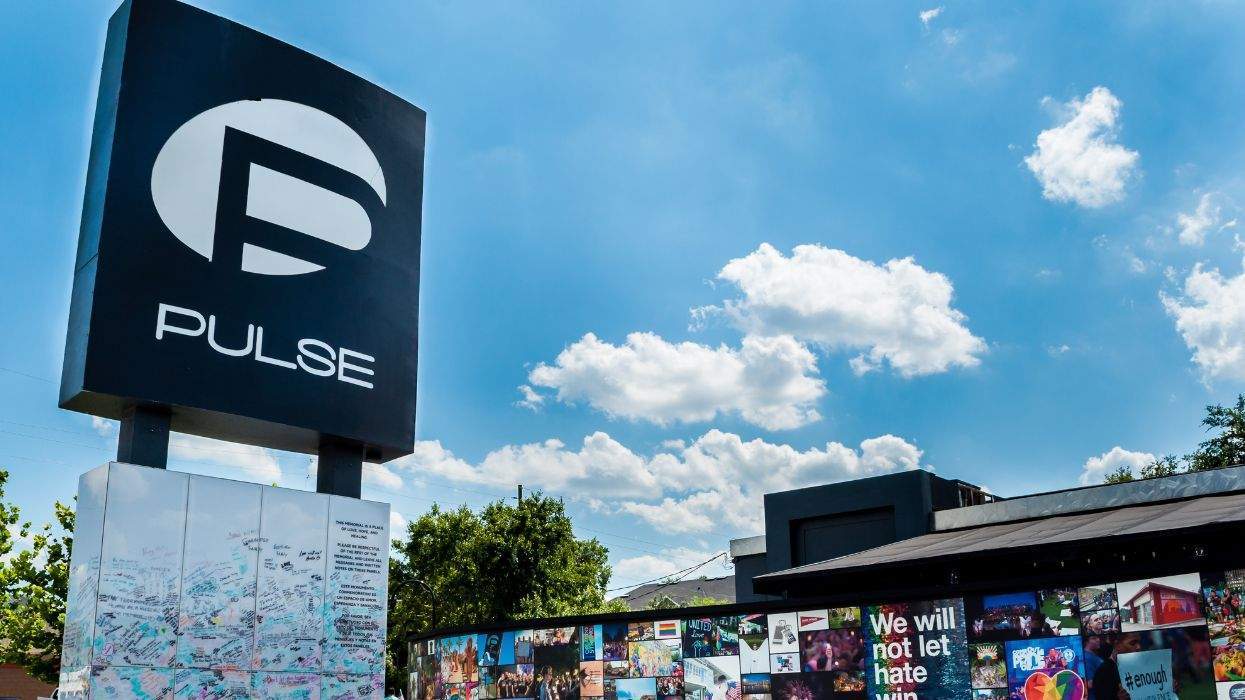After being subjected to electroshock therapy in an effort to "cure" his homosexuality, a 30-year-old gay Chinese man hopes to pressure the World Health Organization to formally denounce the practice known as "ex-gay," "reparative," or "conversion" therapy.
Xiao Zhen (a psuedonym) hopes to draw attention to the use of dangerous and widely discredited practice in China by filing a lawsuit against the clinic that treated him, and by joining an international effort urging the World Health Organization to condemn the practice, according to multiple media reports, including from The New York Times' Sinosphere blog.
"We hope that the WHO will issue a statement about this case because the WHO is still an important authority for Chinese psychologists," said Zhen in a video produced by international LGBT rights group All Out. "Many psychologists still believe homosexuality is a disease that needs to be cured, so if a big-name organization like the WHO can say something about it, I think it will have a significant impact on China."
Zhen's story first began garnering media attention when he announced his plans to sue the "conversion therapy" clinic that he says strapped electrodes to his body, told him to think of his boyfriend, and then began shocking him with an electrical current. The lawsuit also seeks damages from Baidu, the largest search engine in China, because Zhen believes the site was negligent in allowing advertising for the widely discredited practice.
The use of reparative therapy on minors has been outlawed in the U.S. states of California and New Jersey. Several state legislatures, including New York's, considered similar bans this year, though most did not pass. New York's legislature has not yet taken a vote on its bill to outlaw the practice. Federal courts in the U.S. have upheld California and New Jersey's bans, notably after purveyors of the "treatments" tried to have both state's laws overturned.
The American Psychological Association and the American Psychiatric Association, the largest and arguably most authoritative professional organizations for mental health in the world, both declassified homosexuality as a mental illness in the 1970s and have each condemned efforts to change a person's sexual orientation as ineffective and potentially harmful.
Zhen is working with All Out, the Beijing LGBT Center, and, he hopes, the World Health Organization to stop the practice of so-called reparative therapy in China. He and All Out are promoting a petition that asks the WHO's director general to publicly condemn the practice, which has been denounced as harmful by every major medical and psychiatric association in the U.S. At press time, more than 100,000 people had signed that petition.
Zhen says he only agreed to go to Xinyupiaoxiang Counseling Center in Chongqing to try the "treatment" after his mother asked him, invoking a Chinese principle of filial obligation. The powerful cultural dogma evokes a sense of duty for children to comply with their parents' wishes regarding certain core issues such as marriage.
While Chinese news media outlets have generally framed stories about LGBT issues positively recently, Richard Burger, author of Behind the Red Door: Sex in China, says "filial piety" and the pressure to have children means for most Chinese, "coming out is simply not viewed as a possibility."
After decades of LGBT oppression during and immediately following the Cultural Revolution, China finally decriminalized homosexuality in 1997. In 2001 the government declassified being lesbian, gay, or bisexual as a mental illness. Yet, according to China Law Blog, 80-90 percent of gay Chinese will enter into heterosexual marriages even today.
Nevertheless, China Law Blog reports that Chinese media has embarked on a bit of a love affair with the bright images of symbolic gay weddings, the first of which took place near Tiananmen Square in 2009. But social and familial stigma surrounding same-sex marriage and LGBT identities remains pervasive, leading China Law Blog attorney Dan Harris to speculate that marriage equality is still many years away from becoming a reality in China.
Watch as Zhen describes the ordeal he endured at the so-called reparative therapy clinic and explains why he's fighting to end the practice in China in the video produced by All Out:















